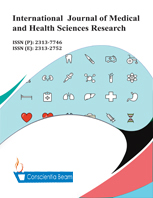Gendered Perspectives of Men’s Health and Help Seeking: Implications for Public Health and Health Promotion
Abstract
Men have a shorter life expectancy than women and have higher death rates. Despite this, men have limited contact with GPs, are reluctant primary care users and often seek help late in the course of an illness compared to women. While research has elicited men’s attitudes towards their health and accessing health services, it has not determined the factors that men take into account when assessing their own health status; the criteria men use to decide whether or not to seek formal health care; or the factors that inform men's perception of what constitutes an acceptable threshold for seeking help. Therefore, this research set out to explore these aspects of men’s health. A qualitative approach was undertaken incorporating semi-structured interviews (n=18 males), two three focus groups with males (n=26) and two focus groups with females (n=20). Potential research participants were sourced from urban and rural locations throughout Ireland via purposive/snowball sampling. The principle of theoretical saturation was applied. The focus groups and interviews were recorded, transcribed and then analysed using thematic analysis. Men’s attitudes and behaviours towards health seeking were complex. Health consciousness increased with age, as did willingness to access health and preventive health services. Health was primarily assessed by physical fitness and absence of disease/illness. Perceived severity of the symptom was the primary trigger to attend the GP although others included persistent symptoms, prompting by a significant other, a direct/indirect health crisis and the media. Men experienced structural, psychological and social barriers to help seeking. Such factors must be taken into consideration when developing health services and health promotion programmes for men.

